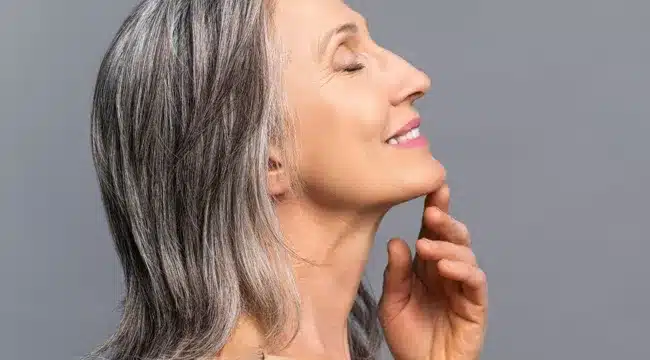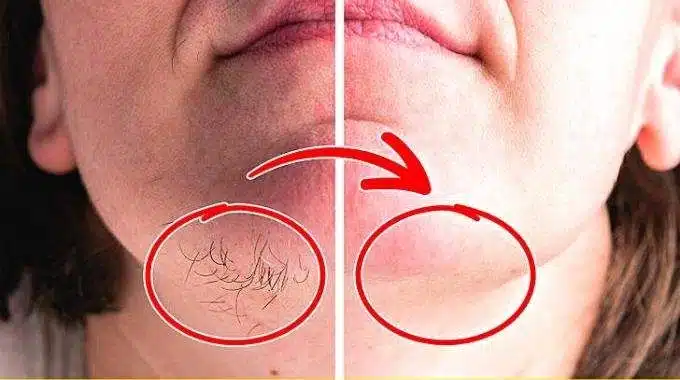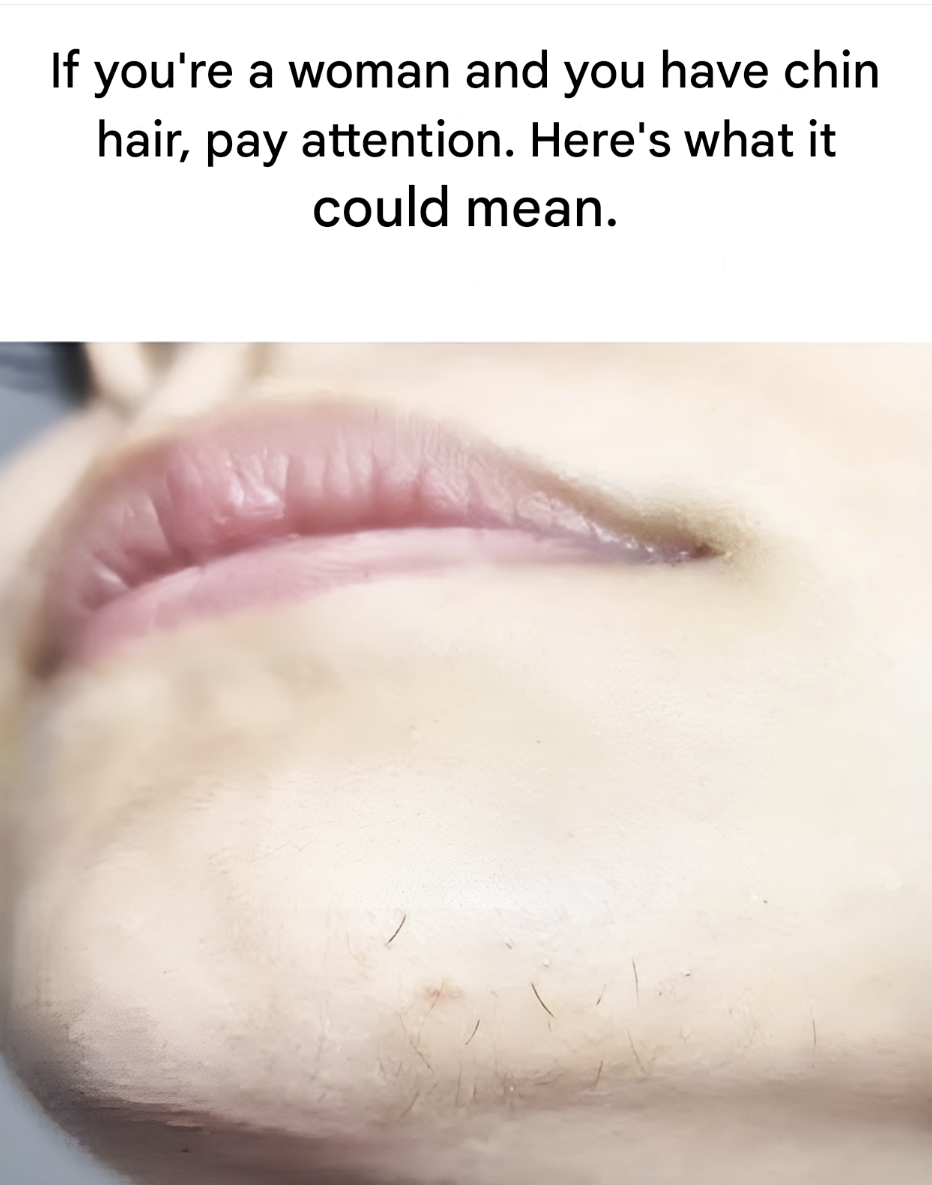
Puberty, pregnancy, menopause… These major stages in a woman’s life are often accompanied by significant hormonal fluctuations. And with them, sometimes, more visible hair growth in unexpected areas like the chin. At menopause, for example, the drop in estrogen leaves more room for androgens, favoring the appearance of thick, dark hair on the face. A natural evolution, certainly a little frustrating, but one that is part of the small bodily changes to accept with kindness and serenity.
Genetics, the factor we cannot choose
If your mother or grandmother tended to have a few hairs on their chin, chances are you do too. Genetics largely determines the density of your hair follicles and their location. It’s a bit like your eye color or hair shape: it’s part of your biological inheritance.
Hair cycles, well-oiled phases
What is less well known is that hair, just like hair, follows a very specific three-stage cycle:
Anagen: the active growth phase.
Catagen: a short transition phase where hair stops growing.
Telogen: the resting phase before hair loss.
The duration of these phases can vary depending on the body area and the person. This is why sometimes a hair seems to appear overnight when, in reality, it has been growing hidden under the skin for several weeks.
When should you consult?
In the vast majority of cases, the presence of a few hairs on the chin is a benign phenomenon, simply linked to hormonal or genetic variations. But if you notice sudden, abundant facial hair growth accompanied by other symptoms such as irregular periods or severe acne, it may be worth talking to a healthcare professional. Sometimes, these signs can reveal a more serious hormonal imbalance, such as polycystic ovary syndrome (PCOS), but rest assured, this is not systematic.
Tame your hair, without feeling self-conscious

Chin hair can sometimes take us by surprise, but you don’t have to accept it if it bothers you aesthetically. Whether you choose to remove it with tweezers, wax, or seek more permanent solutions, the key is to do what makes you most comfortable with yourself. After all, your body belongs to you, and you alone decide how you want to care for it.
